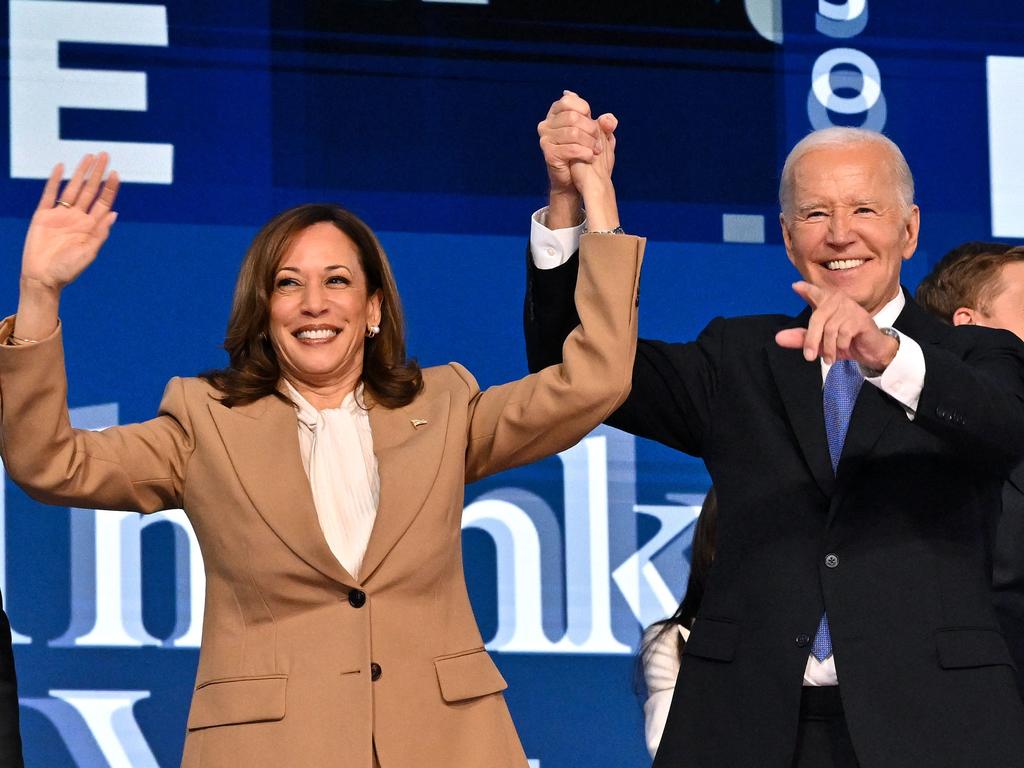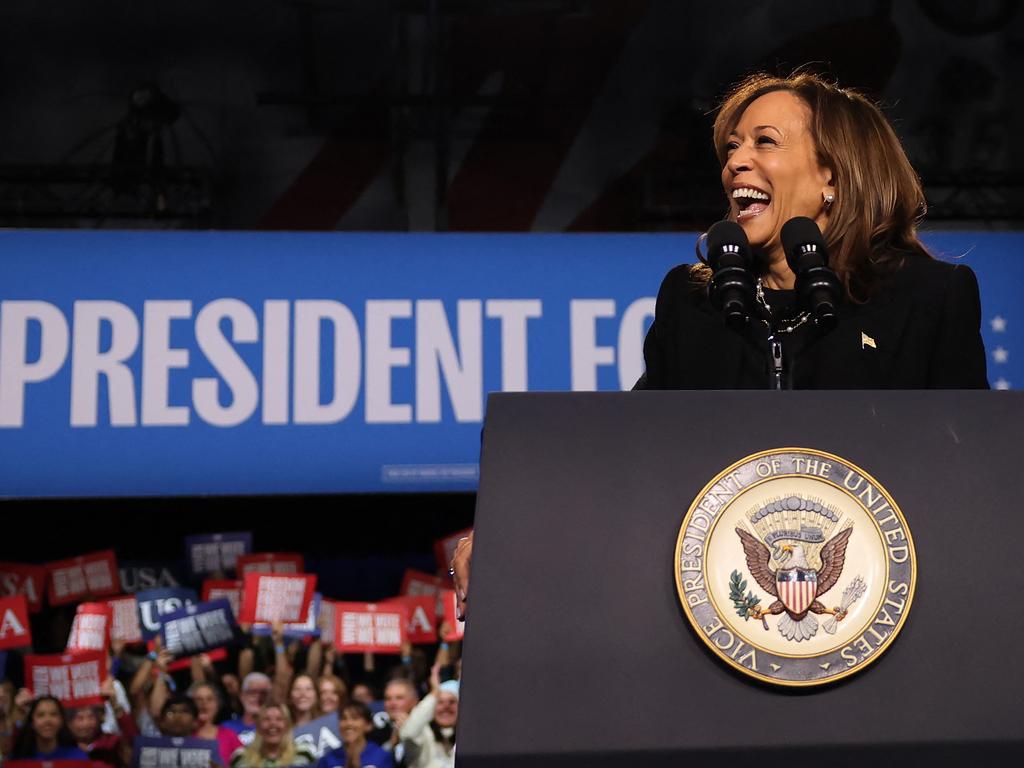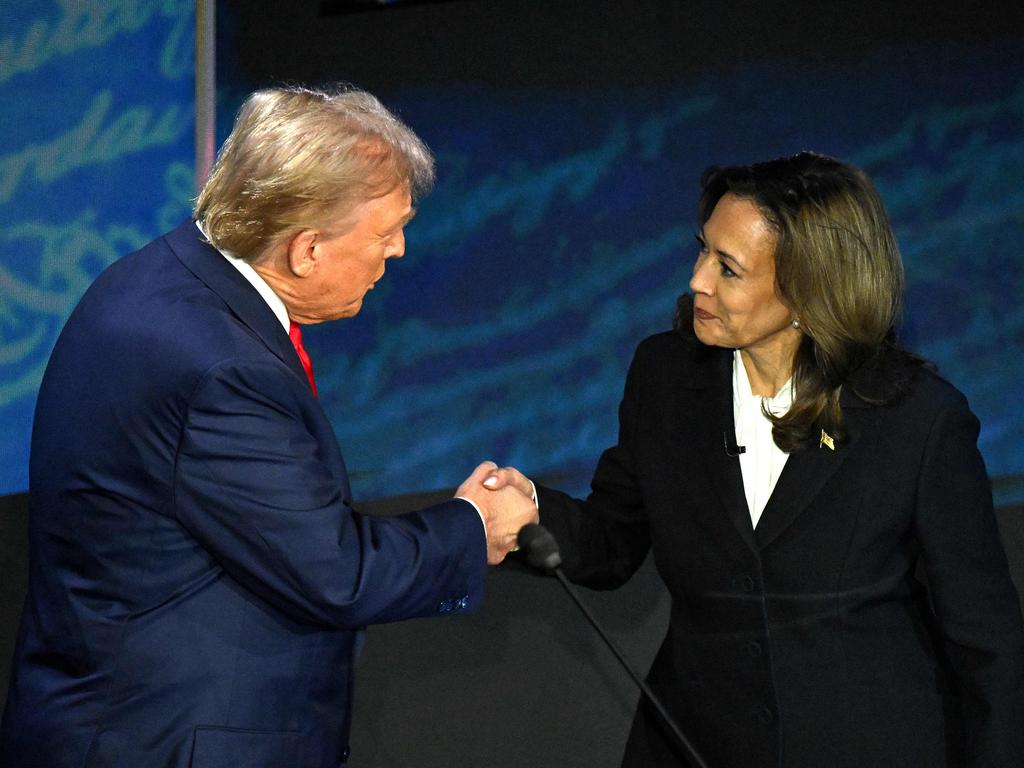
This article is more than
1 year old
Kamala Harris has failed in her historic White House bid — and there was one moment that likely killed her campaign for good.
ANALYSIS
Kamala Harris has failed in her historic White House bid — but in reality it was likely doomed from the start.
From the moment Joe Biden announced he was quitting the race, Ms Harris had less than four months to mount a counteroffensive against Donald Trump, who appeared to be sailing to victory against a deeply unpopular and clearly diminished President.
Unfortunately for Ms Harris, the only person who happened to be even more unpopular than Mr Biden was his Vice President — a fact that Democrat-friendly media were warning could be a drag on the President’s own re-election prospects as recently as March.
That is perhaps why Ms Harris was unable to shake the spectre of unfairness and illegitimacy left by Mr Biden’s extraordinary knifing at the hands of his own party.
Or for that matter, the increasingly spectre-like Mr Biden himself, who caused a number of headaches for the Harris campaign and at times appeared to be deliberately undermining her.

His comments likening Trump supporters to “garbage” dominated the final week, with Republicans painting it as a repeat of Hillary Clinton’s “deplorables” and Mr Trump donning a hi-vis vest to give a press conference from a garbage truck.
Weeks earlier, at a 9/11 commemoration, Mr Biden gave the Trump campaign a gift of a snapshot by happily donning a red MAGA hat, grinning from ear to ear. He also publicly took the side of Florida’s Republican Governor Ron DeSantis in a war of words over hurricane assistance.Ms Harris, for her part, campaigned terribly — she largely dodged media interviews or press conferences, friendly or unfriendly, sticking to scripted speeches and talking points.
But the VP’s honeymoon phase in the polls came in no small part thanks to an extraordinary six-week radio silence before finally giving her first sit-down interview as nominee — with running mate Tim Walz by her side.

That only fuelled perceptions that Ms Harris’ popularity was a largely media-driven phenomenon — at a time when trust in the media is at an all-time low — and allowed the Trump campaign to paint her as an elitist, propped up by powerful institutions and Hollywood celebrities.
Unusually high support for Mr Trump among black, Latino and younger voters in states like Florida also suggest the Harris campaign failed to update its messaging to appeal to these groups, which were heavily courted by Republicans this year.
On the occasions she did sit for questioning with mainstream journalists or take questions from the public, it was clear why she avoided unscripted formats.
She often lapsed into bizarre, word-salad non-answers when pressed on difficult subjects like her track record on immigration.
A CBS preview clip of her 60 Minutes interview with host Bill Whitaker featured a lengthy, nonsensical answer about Israel that was widely mocked — and later did not appear in the final cut of the show.
She also declined to appear on Joe Rogan’s show, the most popular podcast in the world, unless, according to the comedian, he agree to certain conditions including a shorter time format.

Even in her heavily choreographed appearances, Ms Harris was often criticised for appearing rehearsed and awkward — stopping at a gas station to look for Doritos, sitting at a bar drinking beer in front of cameras with Michigan Governor Gretchen Whitmer.
She also made a number of other bizarre unforced errors, like her claim about working at McDonald’s, which led to Mr Trump’s own viral campaign stunt.
Her best moment of the campaign by far was the debate against Mr Trump in September, where she managed to avoid a Biden-style meltdown and baited her rival into angry, rambling answers several times.
She left the debate widely seen as the winner and with huge momentum, which largely seemed to fizzle out in the final weeks.
She and her campaign surrogates arguably spent too much time talking about democracy and fascism and Nazi comparisons, which felt tired and did not cut through with voters.
In the end, though, Ms Harris was trying to thread the impossible needle of painting herself as a change candidate while running for re-election after four years in the White House, touting her experience but distancing herself from the administration.
“I’m not Joe Biden,” she often said.
But when asked on The View last month whether there was anything she would have done differently to her boss, Ms Harris replied, “There is not a thing that comes to mind. I’ve been a part of most of the decisions that have had impact.”
When two-thirds of Americans felt the country was on the wrong track, it may have been the moment that finally killed her campaign.